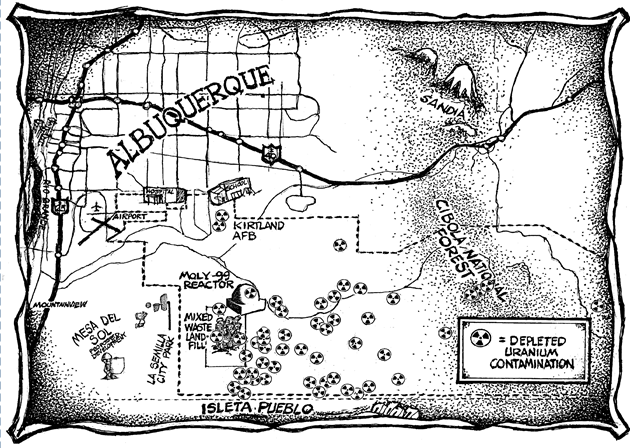
Natural Resources Defense Council (NRDC)
The Natural Resources Defense Council (NRDC) is one of 39 environmental and peace organizations that won a landmark lawsuit against the U.S Department of Energy for failure to follow-through on adequate environmental cleanup during its 50+ years of nuclear weapons research, testing, and production. Part of this settlement was the establishment of the MTA Fund (Citizens’ Monitoring and Technical Assessment Fund), which provided $6.25 million for tribes and non-profit organizations to assess and conduct independent technical and scientific studies regarding the multitude of technical, ecological, and health issues surrounding the nation’s nuclear weapons complex.
Clark University was chosen by the non-profit peace and environmental groups as the conservator of these reports to ensure they remain available to the public in perpetuity. The unconventional election of university as conservator is an innovative example, particularly within the era of Web 1.0, of higher education as protector and provider of information through wide dissemination.
The research and reports available in this series were conducted by the Natural Resources Defense Council (NRDC) with their allocated portion of the MTA fund.
If you have any questions or concerns please contact us at digitalrepository@clarku.edu.
-

A Nontechnical Guide to Groundwater Modeling: With Specific Reference to the U.S. Department of Energy's Hanford Site
Natural Resources Defense Council (NRDC) and Peter Willing Ph.D.
This document is intended to be a practical report addressing groundwater modeling in the U.S. Department of Energy’s nuclear weapons complex that will permit community organizations to more effectively oversee and understand DOE environmental cleanup actions. The nuclear weapons program is distributed among 13 major facilities in 10 states and dozens of smaller facilities. The concept here is to focus on the groundwater modeling activities in some of the cleanup decisions and to suggest how members of the public can ask questions to help them understand the end results.
This research was completed money allocated during Round 1 of the Citizens’ Monitoring and Technical Assessment Fund (MTA Fund). Clark University was named conservator of these works.
If you have any questions or concerns please contact us at digitalrepository@clarku.edu


